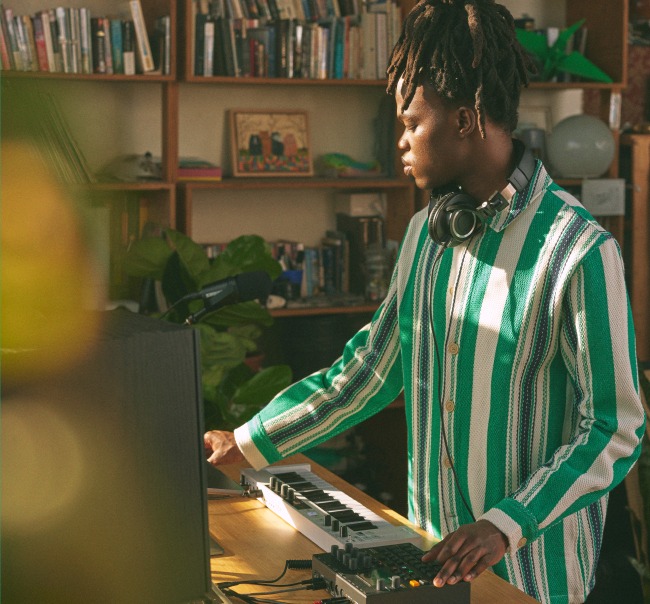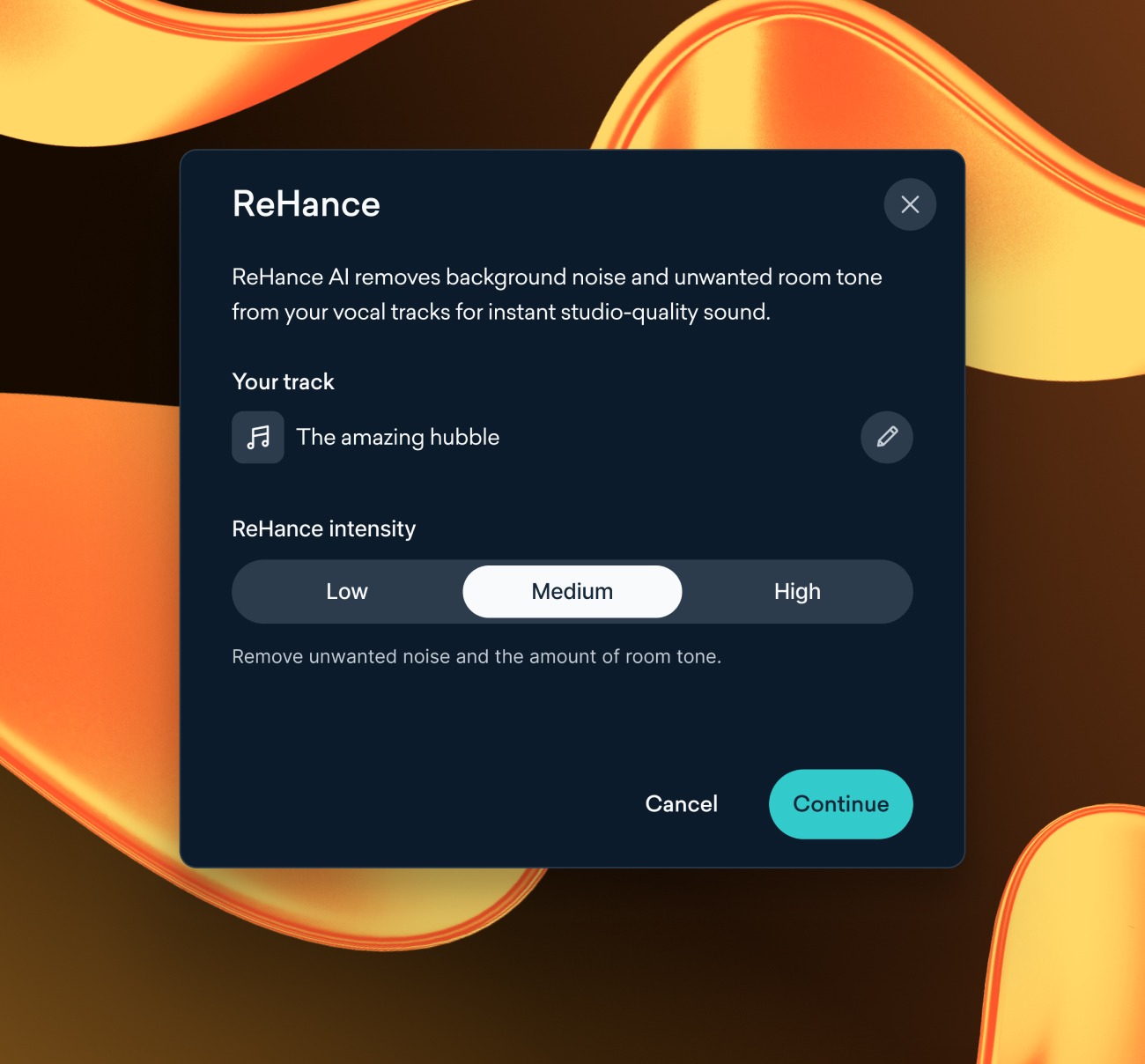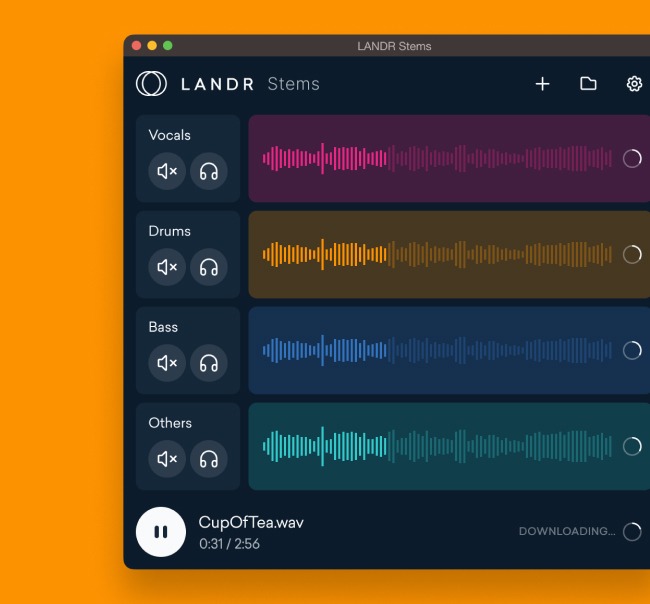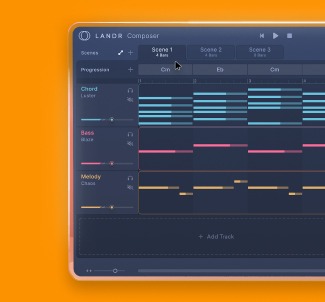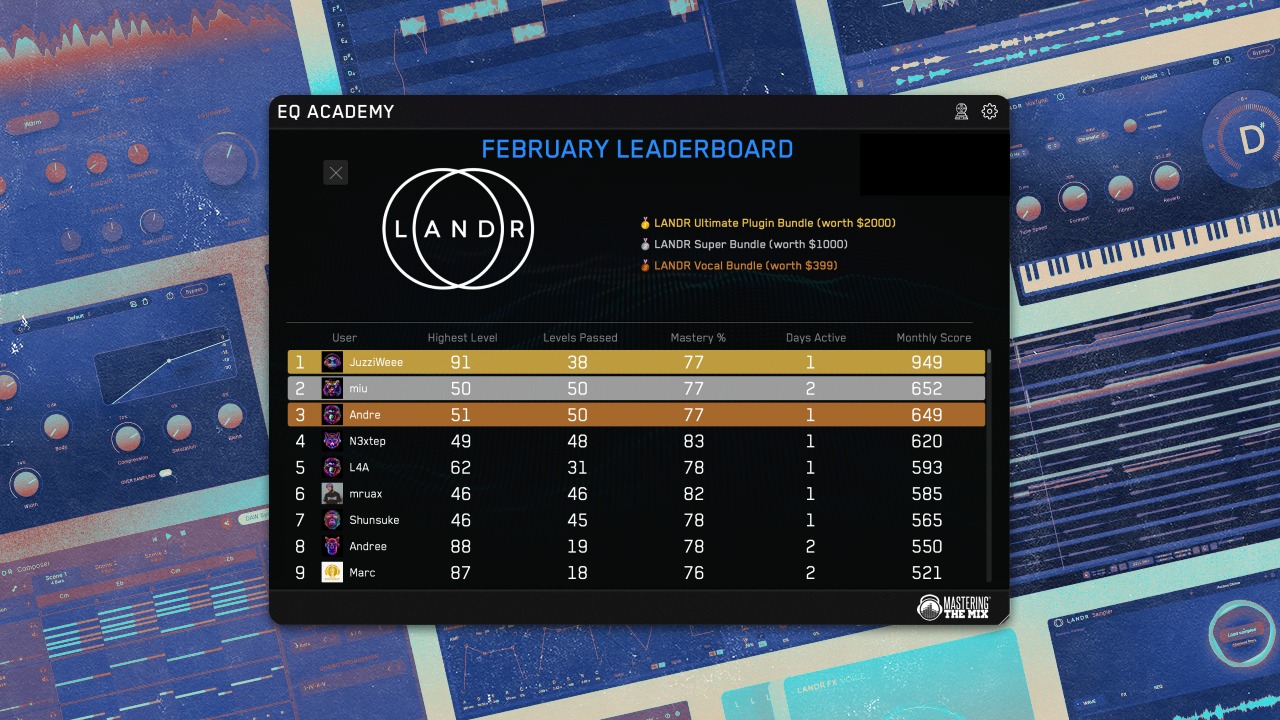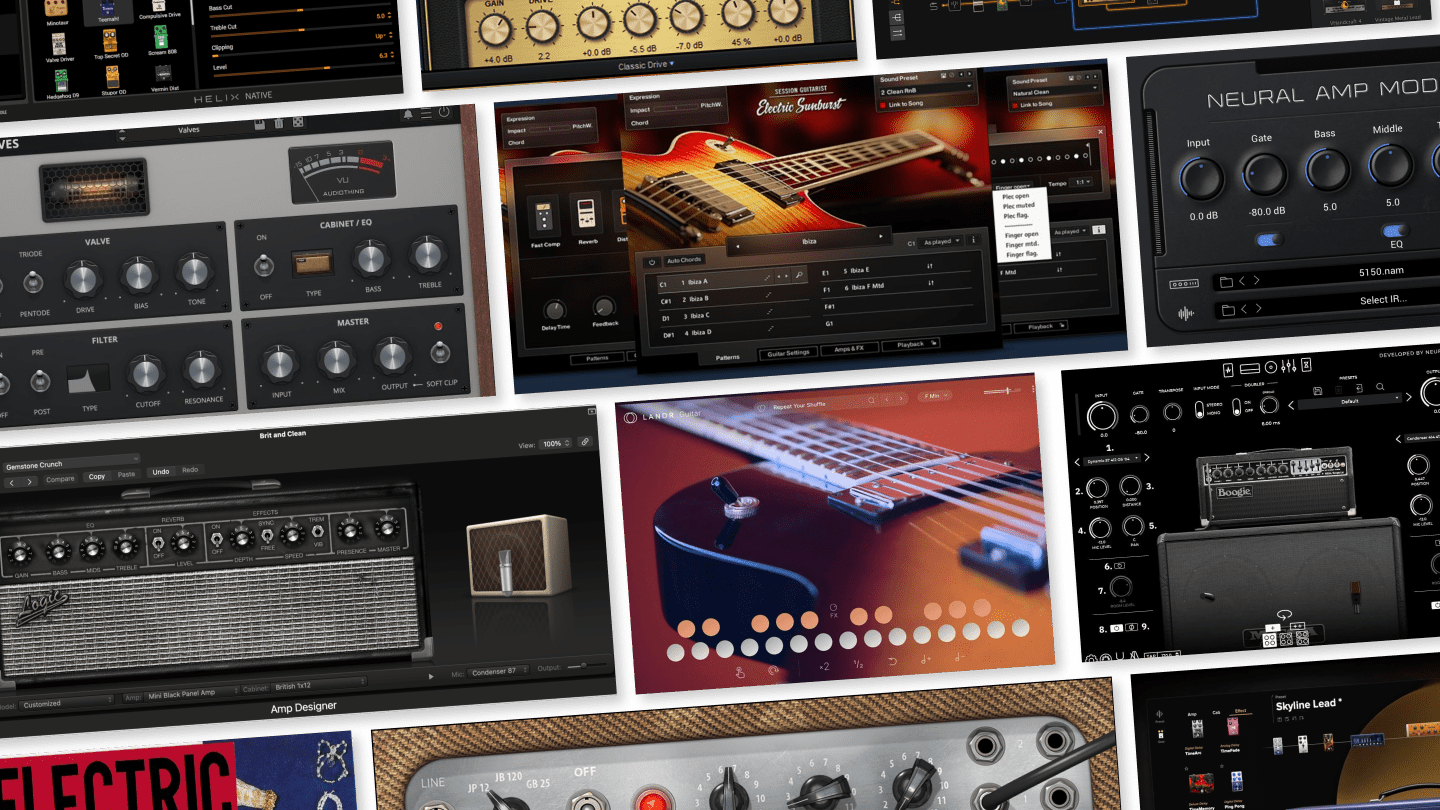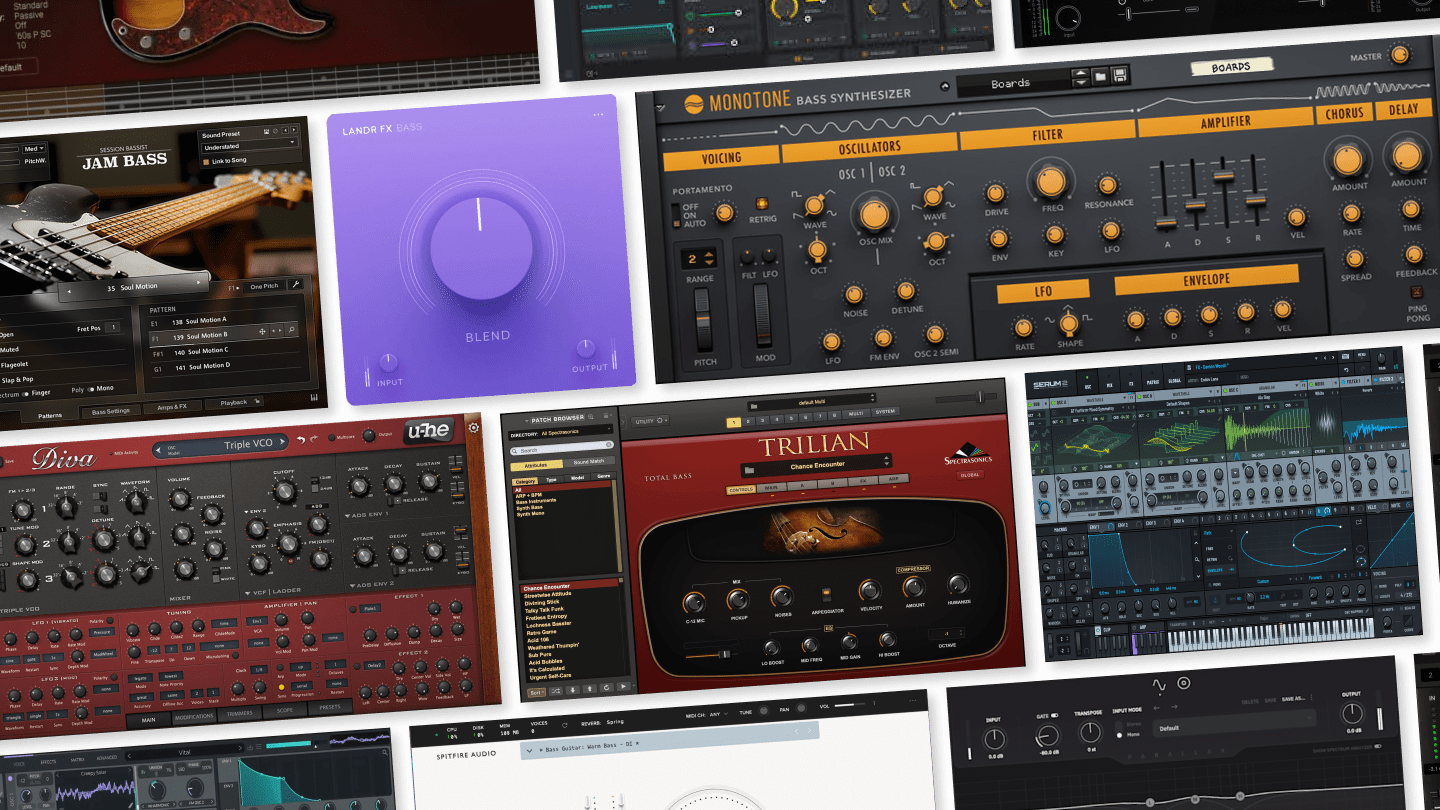
AI in Music: How AI Music Tools are Changing Music Production
If there’s anyone who understands the transformative impact of AI in music production, it’s us here at LANDR.
AI music production tech has been growing rapidly in recent years, and our experience as a pioneer in the field has given us a deep understanding of how it works.
So we thought we’d put together a guide to the current state of AI-powered music tools and answer some key questions that might be on your mind.
Let’s dive right in.
AI music production software is exploding right now
In the past year, AI music production tools from both new and legacy companies have made headlines.
Most notably, a handful of AI music generators that can produce entire songs based on prompts stirred up controversy among several well-known artists and producers.
But when you look at the overall landscape, there are quite a few ways AI is being used in music.
There’s so many AI-tools that actively give music producers better and more interesting options for producing, mixing and mastering their tracks.
In this article, I want to focus on those options and explore how AI can be used as a copilot to support your music-making process.
And, at the end of the article, I’ll share one way LANDR is helping artists and producers actually monetize their tracks transparently and fairly with AI.
But first…
What are generative AI tools?
Generative AI music tools create their own audio, usually based on a prompt. AI music generators require a training dataset that they mimic based on various parameters and prompt input by their users.
Today’s AI music generators have gotten remarkably good at generating fully arranged songs with diverse instrumentation, lyrics and convincingly human-sounding vocals.
Of course, the sound AI music generators produce relies entirely on their training set, which is why concerns around copyrights and the datasets these tools were trained on have led to high-profile court cases and legal disputes.
Still, there are many creative uses for generative AI music tools, not all of them are about generating an entire song based on a prompt.
Already, AI vocal generation is being used to make next-level vocal effects and sample generators are being used to make prompt based instrument plugins.
If you’re curious, here’s a list covering a handful of generative AI tools out there right now.
List of Generative AI Tools
| Full song | Vocal | Sample & stem generators |
| SUNO | Dreamtonics Synthesizer V | LANDR Sampler |
| UDIO | Vocaloid | Session Loops Drumnet |
| Tuney | Kits.AI | TE AI Sample Generator |
| Riffusion | Uberduck | Soundation Gennie |
| Loudly | VoiceSwap | Emergent Drums |
What are audio processing AI tools?
AI’s first role in music production was arguably to process audio, as these tools are capable of modifying and effecting audio signals to achieve music production goals, emulate hardware or produce interesting sounds.
LANDR’s AI mastering tool was the first ever AI-assisted music production tool. Over the past 10+ years it proved that AI could handle audio production tasks and produce mastered audio that rivaled human-made masters.
After decades of research and fine tuning, LANDR’s AI mastering tools are better than ever, offering precise control and industry leading results.
But mastering is just the start, today AI is powering audio processing tools in more ways than ever.
Let’s explore a few of our favorite examples.
List of Audio Processing AI Tools
| Mixing | AI-powered effects | Audio cleanup | |
| Sonible Smart Series | Neural DSP | LANDR ReHance | |
| iZotope Neutron | Baby Audio | Waves Clarity | |
| Roex | ToneEmpire Neural Q | Hush Pro | |
| iZotope RX | |||
Model authentic effects with plugins Baby Audio TAIP and Neural DSP
A few companies are now using AI to help build incredibly accurate models of analog gear, creating effects that sound amazing.
Baby Audio’s TAIP uses AI to emulate the warm sound of classic tape recording machines.
Neural DSP, which uses AI-based modeling algorithms, can create the best-sounding amp simulations we’ve ever heard.
AI is already playing a bigger role in developing audio effects plugins that sound better thn ever.
Split stems or remove vocals
AI-powered stem separators have only gotten better over the years.
Today you can take any track and break it into its various parts, often for free.
This has many applications, whether you want to practice singing or playing an instrument along to a certain track, or if you’ve legally obtained clearance to sample a specific part of someone else’s song.
Recommend samples based on how they sound
Sample marketplaces are amazing because they give producers and beat makers access to royalty-free sounds that they can use without worrying about copyright infringement.
However, sample libraries are so big that it can be hard to find what you want.
That’s why LANDR Selector is such a cool assistant that’s helping producers find cool samples on LANDR Samples.
You can click “find similar sounds” on any sample on LANDR Samples, and LANDR’s AI-powered search tool will find samples that sound similar to the one you’ve found.
How will AI in music be used for creativity?
Outside of generative and AI audio processing tools, there’s a third type of AI-based tool that artists will use to create music. I personally think it’s one of the most interesting ones.
I’m thinking of plugins that are purely oriented towards sound design and composition—the kind of plugin that’ll help a producer create new and interesting synth sounds or generate unique ideas with MIDI.
They don’t generate or process any audio — instead they generate ideas and use AI modeling to help producers make interesting sounds.
Here’s a couple examples of plugins that are employing AI to spur creativity.
List of Creative AI Tools
| Synth patch generators | MIDI generators |
| Sonic Charge Synplant 2 | AIVA |
| Vital MicroMusic | Stacatto |
| Fadr SynthGPT | Lemonaide |
| Guk Sistema | LANDR Composer |
| Audiomodern |
Generate instruments with plugins like SynPlant 2
SynPlant 2 might be one of the coolest AI-based music tools out there.
With SynPlant 2 you can load any sample and the plugin will generate a fully controllable synth that matches the sample you’ve uploaded.
Yes, this plugin will save you time recreating a sound you like using traditional sound design methods.
But even more importantly, AI-based plugins like this open up so many possibilities, especially if you get creative with the samples you upload.
Generate chords, melodies and basslines with LANDR Composer

Here's what LANDR Composer can do.
Another area where AI is helping to inspire creativity is MIDI data generation.
This makes sense, since MIDI data is so easily read and understood by a computer.
For example, LANDR Composer is a powerful MIDI generation tool that generates nicely voiced and arranged chords that you can either play with its selection of synths or paste to your piano roll, where you can make edits and fine tune.
These kinds of tools are great for helping producers come up with new ideas fast.
And if you don’t have deep music theory knowledge, this can speed up your workflow while helping you learn theory in a hands-on way.
How LANDR is giving back control to creators
All the concern about new generative AI tools that hit the market this year is warranted—it’s scary to see a robot generate convincingly human-sounding songs on demand.
However, it’s unlikely that generative music production tools will replace musicians or producers anytime soon, if ever. Arguably, generative music will likely make human-made music that much more valuable.
Music made by humans has a natural feeling that AI won’t ever be able to recreate fully.
At LANDR we think that artists should not only have the right to say whether their music is used to train AI tools, we think they should be paid for it.
That’s why we’ve introduced LANDR’s new Fair Trade AI Program, where artists can choose to opt-in so their music can be used for AI training. For doing so, they will get a percentage of future sales of any AI tools that were trained on their music.
We’ve got some great ideas for AI-powered, assistive tools to spark your creativity and refine your workflow. Tools that can support—not replace—artists. And now with the Fair Trade Program, you can help us do just that.
The role of AI in music is changing
While there are legitimate concerns, especially with copyright and training datasets, we think producers stand to benefit from the help of AI—rather than be hindered or put out of work by it.
AI music tools will speed up workflows, help producers make better decisions and put the focus on creativity.
Remember, only humans can create new genres, push boundaries and communicate deep lyrical truths.
AI tools will help, but the music audiences will pay attention to will be made by real people with real stories.
Gear guides, tips, tutorials, inspiration and more—delivered weekly.
Keep up with the LANDR Blog.
